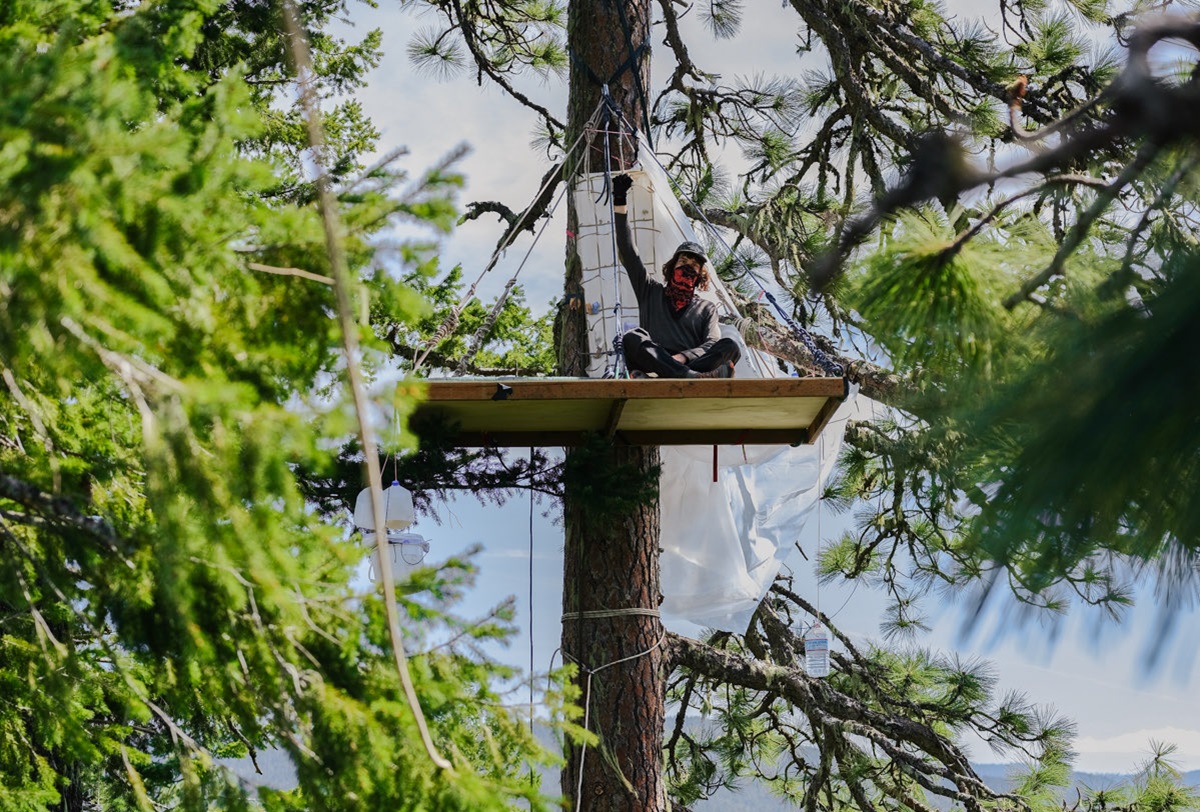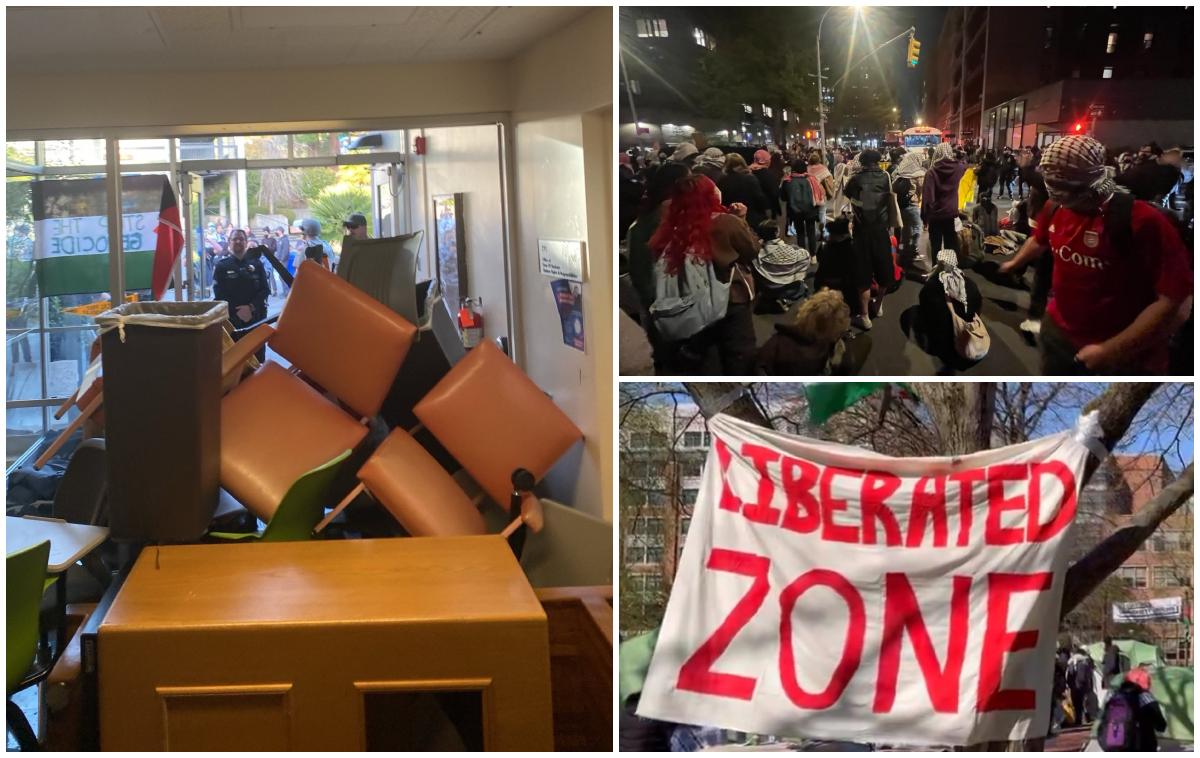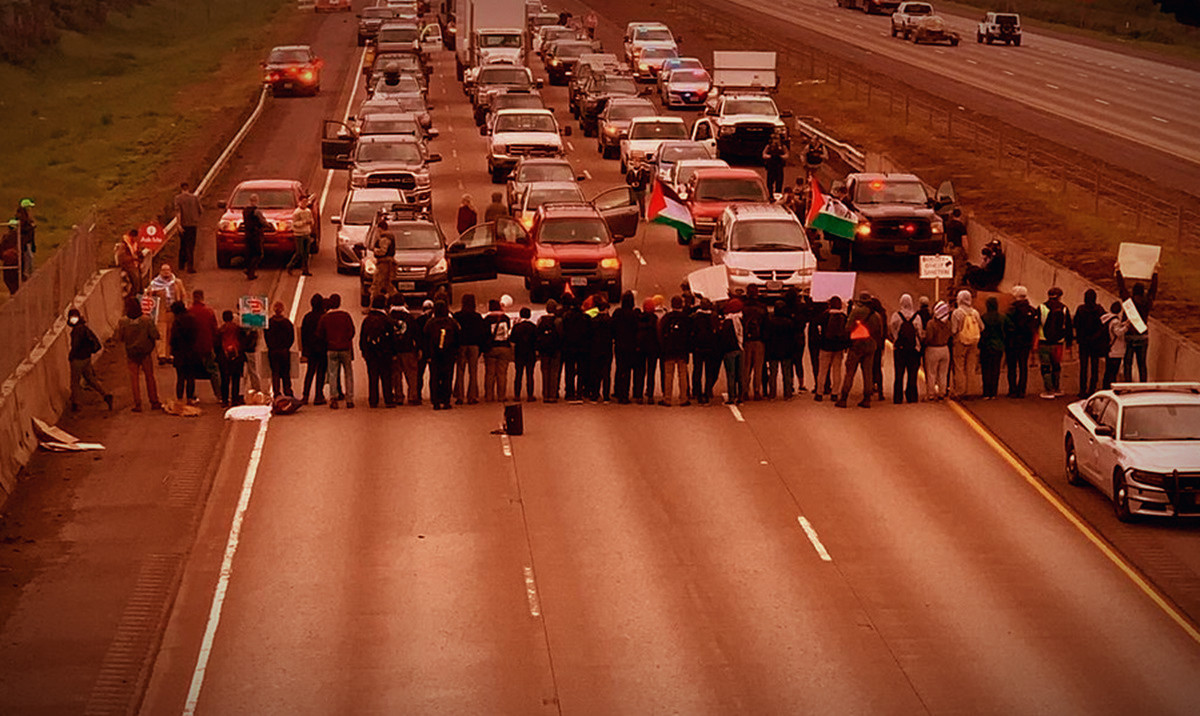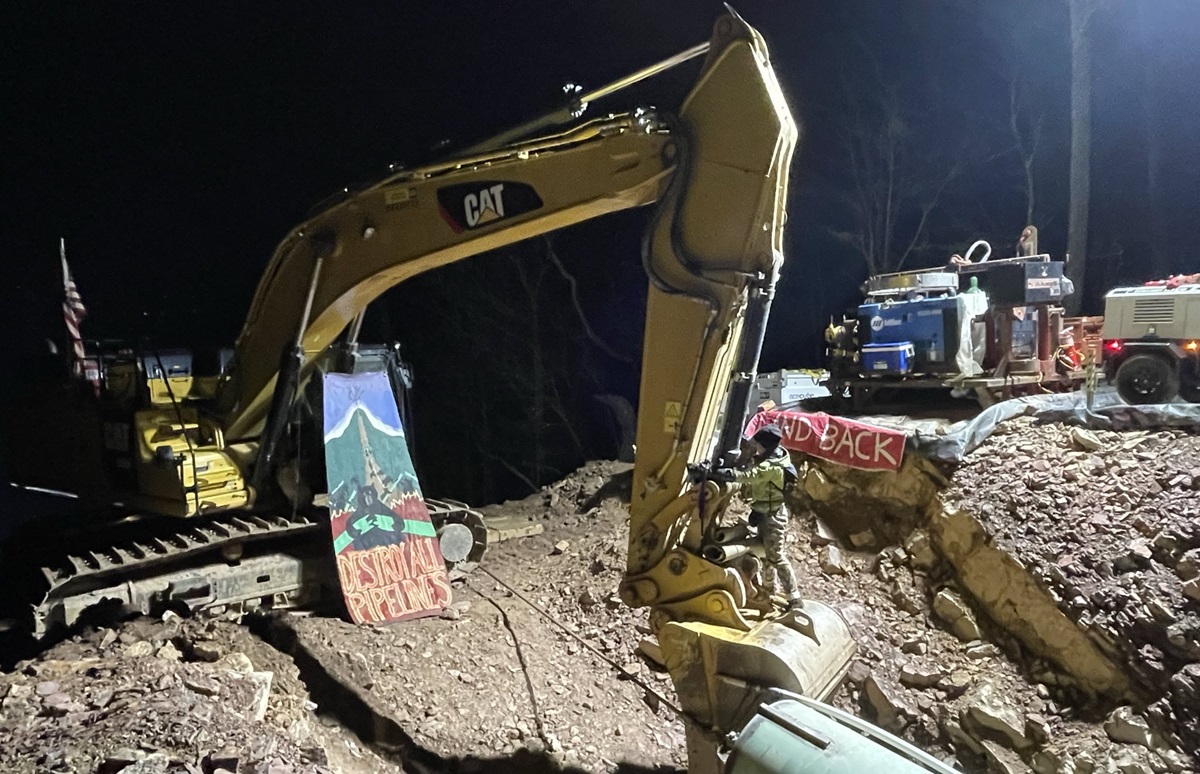Filed under: Canadian Tire Fire, Featured
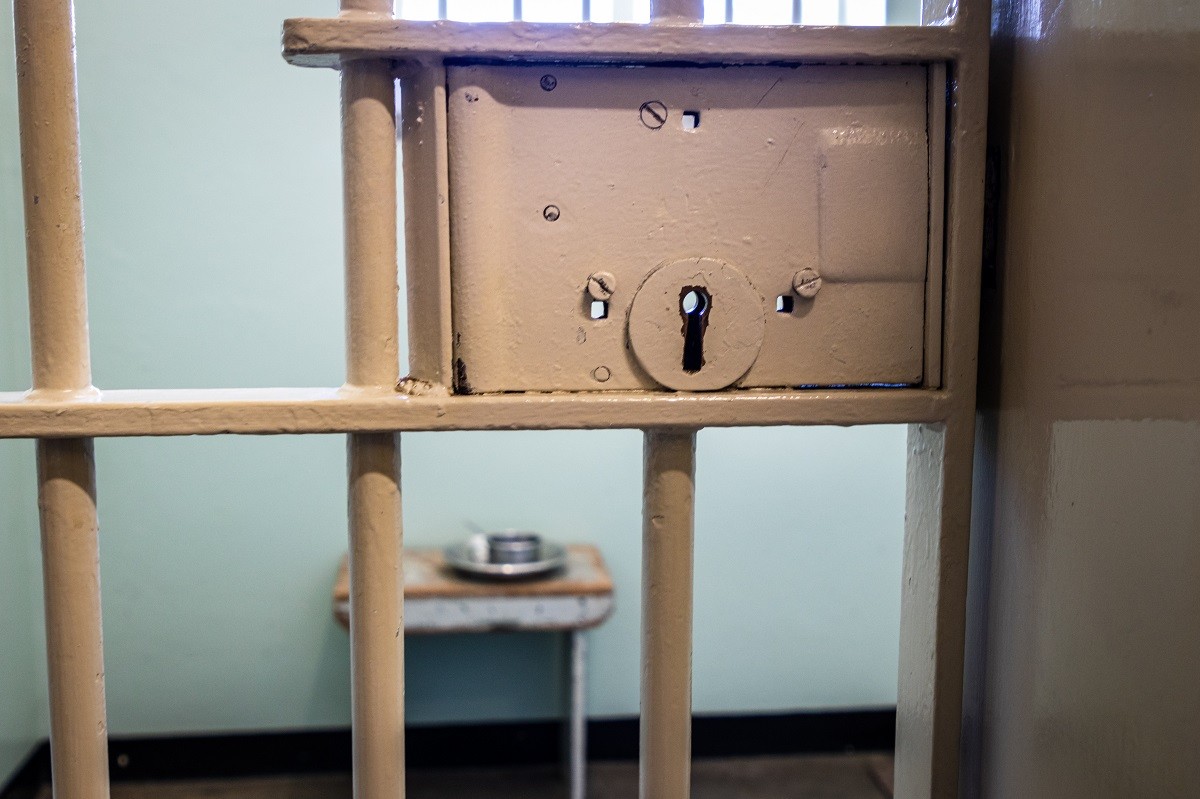
This week we look at a call from politicians to make it harder for prisoners to get bail, updates on prison construction in Ontario, drug decriminalization in BC, and deaths in prisons across so-called Canada.
Bail Reform for the Worse
Earlier in January, all 13 premiers across so-called Canada signed a letter to the federal government asking for stricter conditions for bail in criminal cases. The letter, initiated by Ontario premier Doug Ford, calls for the onus to be placed on the accused to prove they deserve bail in cases of “serious crimes” or repeat offenses. The current legal context places the onus on the crown prosecutor to prove why someone should not be released on bail, or released with strict conditions. Ford’s call for the change was tied to the December killing of an Ontario police constable by someone who was on bail for assault and weapons charges.
Politicians behind the call have argued that the change would not put more people behind bars, but would simply prevent repeat and serious offenders from re-entering society and reoffending. In practice, the majority of people in provincial prisons are already those who have been denied bail. For example, in Ontario, nearly three quarters of people in provincial prisons are those who have not been convicted of their charges, but have not been granted bail. Getting bail is often tied to a person’s ability to get a ‘surety,’ someone who will put up money that can be taken away if the person breaches their conditions and who is deemed by the courts to be a respectable, upstanding citizen – the deck is already stacked against low-income people and racialized people navigating a racist system.
In Ontario, hearings were held on January 31 and February 1 by the Provincial Standing Committee on Justice Policy. So-called experts including police officials and legal advocacy groups shared their feedback on bail reforms with a group of MPPs who will now write a report with recommendations for the legislature. Doug Ford says he is looking to move quickly on the issue.
Watch public deputations on the current state of our Bail System. The police have taken up 1 WHOLE day with deputations. Watch the police associations try to convince that we need to make Bail systems more harmful.https://t.co/t74U6nZKG2
— incarcerated_voters_ON (@incarcerated_ON) January 31, 2023
Prisoners are an easy scapegoat for politicians looking to boost their image with constituents using a tough on crime solution to insecurity. It is also worth noting that many provinces are in the process of expanding their provincial prison systems – Ontario, Quebec and New Brunswick to name a few – so filling those prisons becomes a necessity to justify the projects, as this reform will almost certainly help to do.
Ontario Prison Construction Updates
Winter Update on New Prisons in #Ontario
" EllisDon has started work on the new prison in Thunder Bay, the so-called Thunder Bay Correctional Complex (TBCC). They started work in early November."https://t.co/kA0eZm1C29 pic.twitter.com/VPPikQOMZi
— North Shore Counter-Info (@nscounterinfo) January 28, 2023
In Ontario, the construction of new prisons is currently underway. An update released by the group Escaping Tomorrow’s Cages summarized the status of construction projects in Northern Ontario. The update reads in part:
Since our last update, EllisDon has started work on the new prison in Thunder Bay, the so-called Thunder Bay Correctional Complex (TBCC). They started work in early November.
As we anticipated, the number of prisoners the government claims this prison will hold has started rising. On Infrastructure Ontario, they are now stating the capacity as 345, which is up from 325 as recently as a couple of months ago. This is to be expected because the initial number was lower than the prisons they were claiming to replace, and because that is just how these projects tend to go.
In addition to that increase, EllisDon and the province revealed that the recently completed expansion to the Thunder Bay Correctional Centre (on the same site as the TBCC) is in fact permanent and will be connected to the TBCC. They are calling it the Modular Build Facility, or MBF, and it is located south-east of the TBCC site. The stated capacity of the MBF is 50 people, which is again higher than the initial number, since the province first claimed the expansion to the Kenora Jail and the Thunder Bay Correctional Centre would be for a combined 50 people.
With this supposedly temporary capacity now being permanent and with space for 20 more people, that makes for a total of 70 more beds than were initially announced, an increase of 15%. As we have said before, we will only believe they are actually closing the old prisons when they are actually demolished, and this kind of maneuver is exactly why.
To read the rest of the update, including news on collaborators on the projects, visit Escaping Tomorrow’s Cages.
Drug Decriminalization Comes Into Effect in BC
On January 31, BC became the first province in Canada to decriminalize the possession of small amounts of cocaine, fentanyl, heroin, MDMA and methamphetamine. The change is both celebrated as a result of years of advocacy by people who use drugs and their allies, while also facing critiques for not going far enough to prevent the deaths and criminalization of drug users. The new law allows the possession of a maximum of 2.5 grams of drugs, though questions remain about how police will enforce this limit, and whether it will lead to increased police interactions. Advocates have also raised concerns that the limit does not account for regular drug users who may be carrying enough drugs for multiple days or people.
In all the meetings & media coverage, it’s hard to hit the right tone. We gotta be straight up about BC decrim's many shortcomings. But we're not critics on the sidelines. We gotta claim some victory. Nothing at all would've happened if not for VANDU's 25 year struggle on this.
— Garth Mullins (@garthmullins) January 31, 2023
At the same time, municipalities in BC are passing laws which undermine some of the gains made by the new law. In Campbell River, for example, City Council passed a new bylaw to fine those who use drugs in public.
On the same day as the new law came into effect, the Drug User Liberation Front published a press release responding the change and highlighting some of the crucial work they continue to do to keep their community safe:
On the heels of the limited decriminalization of small amounts of certain drugs in British Columbia, the BC Coroner releases another devastating announcement that overdoses continue to increase. In response to this announcement, and in memory of all those lives needlessly lost, the Drug User Liberation Front announces its 6th month of running its community regulated cocaine, heroin and methamphetamine store/compassion club …
After 6 months of operation and over 1kg of substances provided through the compassion club, there have been no deaths resulting from the club. Further, members of the club are reporting less involvement in crime, less overdose risk, higher financial stability and increased control over their lives…
Without a substantial increase in the availability of regulated drugs, decriminalization will not reduce overdose deaths. It is with profound frustration and unimaginable grief, that we ask for the government to act now and regulate the illicit market, before more lives are lost.
Deaths in Canadian Prisons
At least three people have died in Canadian prisons over the last three weeks. On January 18, Cassandra Fox died in custody at the Okimaw Ohci Healing Lodge, a federal facility in Saskatchewan. On January 25, a man died in federal custody at the Bath Institution in Ontario. And in Nova Scotia, a man was found unconscious in his cell on January 28 at the provincial Cape Breton Correctional Facility and later died in hospital. No more information is known about these deaths, though the cause of death in prison can never be separated from the conditions of incarceration itself. We mourn all those whose lives have ended behind bars.
photo: Grant Durr via Unsplash


